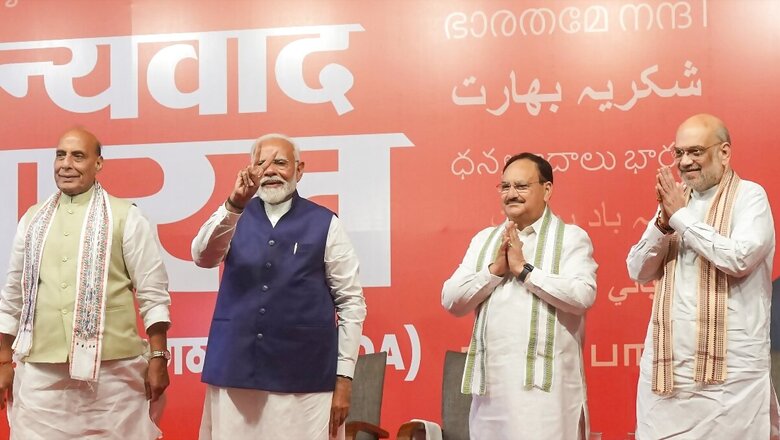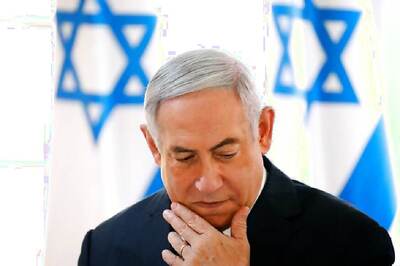
views
As the Modi 3.0 government commences work in earnest following its historic mandate for a third consecutive term, and as Bharat moves closer to the centenary of its independence in 2047, the vision of Viksit Bharat—a developed India—remains centre stage and non-negotiable in its policy objectives.
Prime Minister Narendra Modi’s vision for ‘Viksit Bharat 2047’, while rooted in economic prosperity, also emphasises social equity, inclusive growth, and environmental sustainability, ensuring equitable and sustainable development. As such, this goal is non-negotiable and vital, and PM Modi’s third term will make it a reality.
This goal is not just aspirational but a necessity for India’s future for several reasons-
- Economic Stability: Achieving developed nation status will ensure financial stability and resilience, which are crucial for withstanding global economic shocks and fostering sustainable growth.
- Social Equity: Addressing issues like poverty, unemployment, and social disparity is essential for creating a cohesive and harmonious society.
- Global Standing: A developed India will have a stronger voice on the world stage, capable of influencing international policies and contributing to global peace and prosperity.
Over the past decade, Prime Minister Modi’s government has laid a solid foundation for Viksit Bharat through various reforms and initiatives. These efforts have already set India on a transformative path-
Infrastructure Development: Projects like Bharatmala Pariyojana, the Sagarmala Programme, and the Smart Cities Mission have significantly improved connectivity and urban infrastructure.
Digital Transformation: The Digital India initiative has revolutionised governance and service delivery, making public services more accessible and transparent.
Economic Reforms: Implementing the Goods and Services Tax (GST), the Insolvency and Bankruptcy Code (IBC), and ease of doing business reforms have enhanced economic efficiency and attracted foreign investment.
Social Welfare: Programs like Ayushman Bharat, Pradhan Mantri Awas Yojana, and Swachh Bharat Abhiyan have improved healthcare, housing, and sanitation, uplifting millions of lives.
Prime Minister Modi’s third term will focus on several key initiatives to drive India towards the goal of Viksit Bharat-
- Advanced Infrastructure: Continued investment in highways, railways, airports, and urban development will create a world-class infrastructure network, boosting economic growth and connectivity.
- Innovation and Technology: Promoting innovation and technological advancements through initiatives like Startup India and Make in India will foster a dynamic and competitive economy.
- Green Growth: Emphasising on renewable energy and sustainable practices will ensure environmentally responsible development, address climate change, and conserve resources.
- Human Capital Development: Enhancing education and healthcare systems will develop a skilled and healthy workforce, which is crucial for a developed nation.
- Social Inclusion: Strengthening social welfare programs will ensure that the benefits of development reach all sections of society, promoting social equity and cohesion.
Continuity in leadership is crucial for the sustained implementation of long-term policies and projects. Prime Minister Modi’s third term will ensure policy stability, accelerate impetus for critical development projects, and prevent disruptions and policy paralysis. Building on the momentum of the past decade, PM Modi’s leadership will drive further advancements in infrastructure, digitalisation, and economic reforms and help guide the nation through complex challenges, leveraging his experience and strategic insight.
The pro-incumbency wave and public support for PM Modi’s leadership reflect confidence in his development agenda and have provided a stable mandate for his third term, along with the expansion of the BJP’s and NDA’s footprint in the new states of Odisha and Andhra Pradesh, and a comfortable win again in Arunachal Pradesh. This, combined with the BJP’s organisational strength and extensive grassroots network, ensures the effective implementation of policies at all levels.
Elections will come and go in the hurly-burly of our great democracy, and their related analysis and scrutiny will continue as we head towards 2047, but the vision and goal of Viksit Bharat must be safeguarded and should be the key objective of all new governments. The Opposition must also align with this imperative and ensure that the journey to a developed Bharat is neither stonewalled nor thwarted. It is the duty of the Opposition to question and challenge the government of the day, but it also has a responsibility to emphatically support higher national objectives.
Viksit Bharat 2047 is not just a vision but a comprehensive roadmap for transforming India into a developed nation. It is a non-negotiable goal for India’s future, and Prime Minister Narendra Modi’s third term is pivotal in realising this vision. With a strong foundation already in place, the continued leadership of PM Modi will ensure policy stability, strategic alignment, and effective implementation.
As India stands on the brink of a transformative journey, PM Modi’s third term promises to be a decisive phase in achieving the dream of a developed and prosperous nation by 2047.
The author is an angel investor and startup mentor for the Atal Innovation Mission, Government of India, and the Atal Incubation Centre-Rambhau Mhalgi Prabhodhini. He is presently the Convenor (Western Maharashtra) of the BJP Intellectual Cell and has recently co-edited the book – Modi’s North East Story. Views expressed in the above piece are personal and solely that of the author. They do not necessarily reflect News18’s views.

















Comments
0 comment